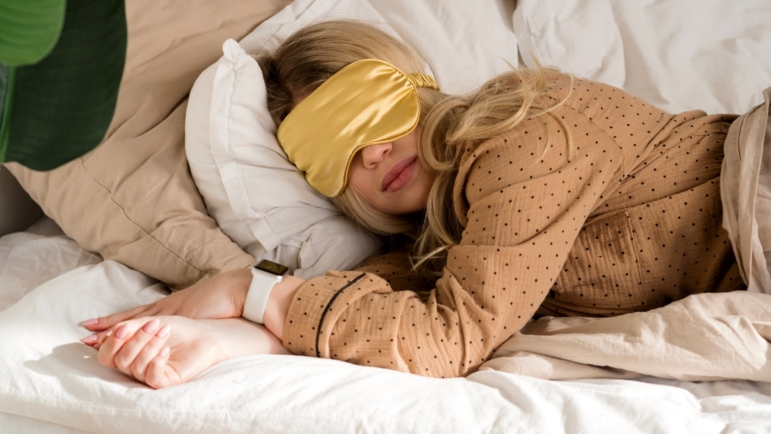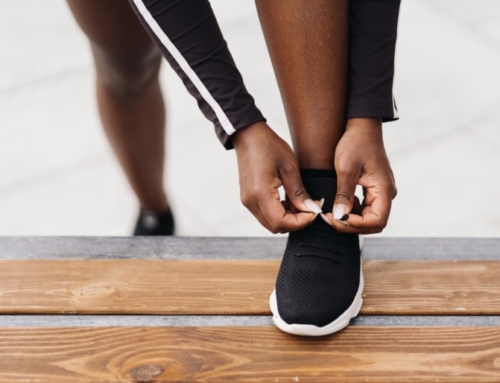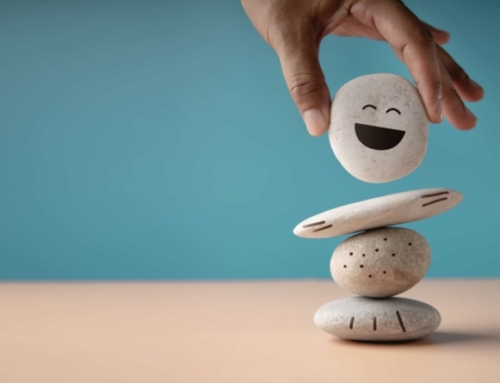If you’ve experienced sleep disruptions – problems falling or staying asleep, sleep fragmentation, or nonrestorative sleep – and have already undertaken various sleep hygiene measures but with limited benefit, then these are additional approaches to consider.
Strategies to Control Sleep Temperature
Controlling your body temperature during sleep by adjusting the thermostat in your bedroom is a basic approach. For some people, that is enough, but not for everyone.
If you’ve tried adjusting your room temperature either up or down and had only partial success in improving your sleep, you might not have been extreme enough.
For some, the decrease in room temperature needed for good sleep must be dramatic. One physician I talked to recently told me his ideal room temperature is 61 degrees Fahrenheit. A friend just told me that she keeps her bedroom window open all winter long (in Chicago) and that the temperature sometimes drops to 50 degrees. (Her husband didn’t seem thrilled by this because his head gets cold but admitted it also improves his sleep.) And several other people told me that 65 degrees or so is their ideal temperature.
Another potential problem is the ‘too hot and too cold’ problem. You may feel like you’re body is burning up below and simultaneously cold on top. When your body overheats against the mattress and pillow, you will tend to use a lighter blanket or sheet on top. This compromise fails to fully resolve the problem and you remain cold on top and hot below.
This ‘too hot and too cold’ problem is exacerbated by artificial, non-breathable fabrics used for sheets, pillowcases, and mattress covers. Here you can do two things. One, use ONLY 100% cotton sheets and pillowcases, natural filling in your pillows like goose down or beans, and a mattress cover made of 100% cotton or bamboo fiber. And, two, if that helps but is not enough you can even try a mattress that breathes or has a built-in device that generates airflow through the mattress or that circulates cool fluid across its surface. If you want a natural option, you can try a futon or quilted sleeping pad made of 100% cotton fill.
Another temperature-related sleep problem has to do with different body parts needing different levels of covering to feel comfortable. A common problem that makes falling asleep hard is cold feet. Trying on different thicknesses of socks can help regulate their temperature without the need to raise the temperature of the room or use a heavier blanket.
Weighted Cover
As discussed, a lower room temperature may be beneficial to sleep. It may be effective in itself, but it may also be because of the heavier covering one is then more likely to sleep under. It can be the weight of it that is comforting. Before buying a weighted blanket, you can experiment by just lying down under whatever heavy covering you already have for a few minutes – before you get overheated from it – just to see how sleeping under a heavy cover feels. You may be a person who has an ‘aha’ moment about how comforting lying under something heavy feels. It may provide a noticeable sense of security and lead to an ability to relax, one not otherwise achievable.
Morning and Daytime Strategies
When beginning to make changes to one’s daily routine to achieve better sleep, the place to start is to focus on the evening routine. After all, that is the time of day immediately preceding bedtime. Sometimes fixing the evening routine is not enough. In these cases, extend your efforts to encompass the entire 24-hour diurnal cycle.
After all, the circadian system controls many related daily physiological and behavioral rhythms, allowing humans to synchronize internal processes with environmental timing cues, like daytime and nighttime. The central timekeeper is located in the hypothalamic suprachiasmatic nucleus (SCN) and synchronizes peripheral clocks throughout the body via humoral and neural signals. For example, insulin, ghrelin, adiponectin, and cortisol are elevated in the morning and early afternoon, while melatonin, thyroid stimulating hormone, prolactin, leptin, growth hormone, and fibroblast growth factor 21 are elevated in the evening and night. These rhythmic hormones regulate, among other things, eating and sleep.
Sleep tends to progressively worsen as we age and is due to, among other factors, decreased circadian rhythmicity and, thus, lower rhythmicity of the various dependent physiological processes and hormonal releases. Thus, as we get older, we need to become ever more vigilant in eliminating sleep-disrupting activities.
Thus, to improve sleep, it helps to maintain one’s routine throughout the entire circadian cycle. Do not limit yourself to changes in evening routines and sleep parameters. For example, expose yourself to bright light in the morning. If natural sunlight is available and you have time, go outside to take a brisk walk or jog. Eat breakfast in the bright light. If you wake before sunrise or shortly afterward, use an inexpensive bright light device. In the morning and during the day do NOT block blue light by wearing blue light blockers or by turning the light spectrum on your artificial light away from the blue spectrum. In the evening, conversely, start using blue blockers and the evening (amber) light setting on your computer. Do so earlier than you might have thought of doing. If you have been blocking blue light one hour before bed, try starting two hours before bed.
Along with optimizing one’s light exposure, it also helps to maintain a regular schedule of mealtimes and heightened physical activity. Both moderate exercise and cardio will help you sleep. There are caveats: vigorous exercise heats your body and, thus, if you exercise too close to bedtime, it may interfere with sleep. Your body naturally starts cooling as bedtime approaches. Vigorous activity or even a hot bath or shower too close to bedtime may interfere with sleep.
Many people, including you perhaps, find that a warm bath or shower is relaxing and makes it easier to fall asleep. Yes, this is often the case and supported by evidence. First, relaxation, both mental and muscular, can lead to a state of comfort and drowsiness and lead to sleep. Second, this ‘warm bath effect,’ by warming the skin, leads to dilation of peripheral blood vessels which, in turn, leads to increased heat loss from the core. During sleep, body temperature drops by 1-2 degrees. Thus, a warm bath or shower, by causing relaxation and a drop in core body temperature, can improve falling and staying asleep.
However, there are two caveats. First, if you spend too much time in a hot shower or warm bath, the heat transfer from the water to your body can increase your core body temperature. Thus, the first approach is to limit one’s time in the hot shower or bath. You want the relaxing surface warmth and peripheral vessel dilation without core body temperature increases. Second, if you take your hot shower or bath right before bed – for example, just right into bed after drying off from the shower or bath – you are not giving your body the chance to lose heat from the dilated vessels. All that heat is then trapped with you under the covers. So, the approach here is to give yourself enough time between shower and bedtime. What’s the right amount? I haven’t found an official answer, but it seems at least half an hour is reasonable.
Food and Drink – Satiety and Hydration
There are two extremes to avoid: 1) eating and drinking too close to bedtime and 2) restricting food and drink too early in the day.
If you go to bed too soon after a meal, especially a high-calorie and slow-to-digest meal, you will be digesting during the time you’re falling asleep and sleeping. Digestion produces a lot of internal body heat. You may have noticed that after a heavy and late dinner, you may wake up two hours after sleep – if you can even fall asleep – and feel you’re burning up. Note that on average 10% of calories consumed are expended during digestion. If your body is still hard at work – and generating heat as part of that work – that will interfere with sleep.
On the other hand, trying to sleep with hunger pangs will also make it hard to fall asleep. So, a light meal or snack in the evening may strike the right balance.
Now let’s consider hydration. You may not yet be getting it right. If you’re not sleeping well, with restless and fragmented sleep, you may be dehydrated. You may just generally not be hydrating adequately from oversight, or you may be intentionally restricting evening fluid intake to minimize nocturia. If you are limiting evening fluid intake, then you must compensate by drinking more fluids earlier in the day. If you don’t, then you may be going to bed dehydrated.
Thanks and take care,
Dr. Jack
Language Brief
“Sleep is the best meditation.” – Dalai Lama
“Sleeping is not time wasting.” – Mike Wilson
“Finish each day before you begin the next, and interpose a solid wall of sleep between the two.” – Ralph Waldo Emerson
“To sleep is an act of faith.” – Barbara G. Harrison
“Many things – such as loving, going to sleep, or behaving unaffectedly – are done worst when we try hardest to do them.” – C.S. Lewis
“No day is so bad it can’t be fixed with a nap.” – Carrie Snow







Leave A Comment